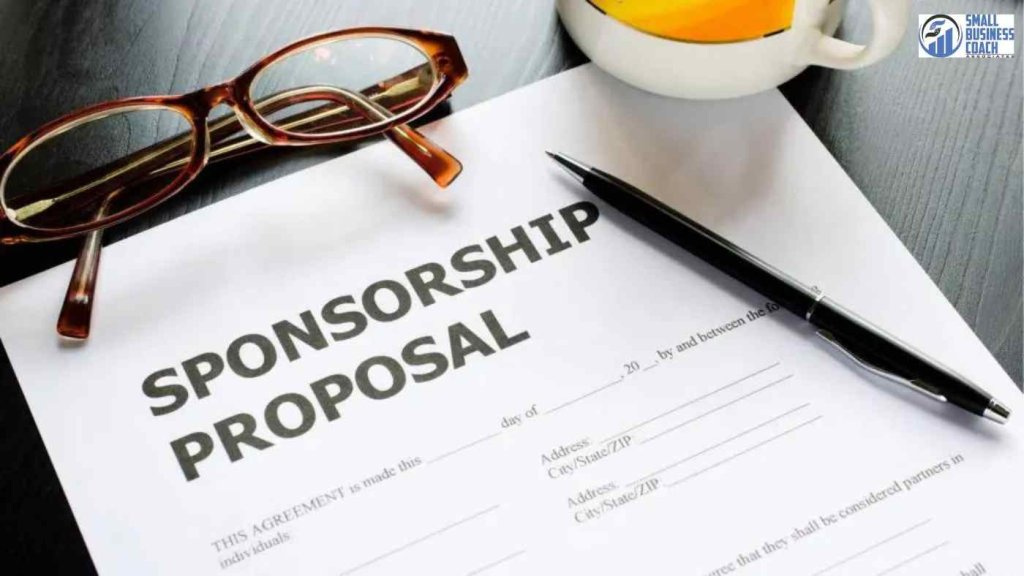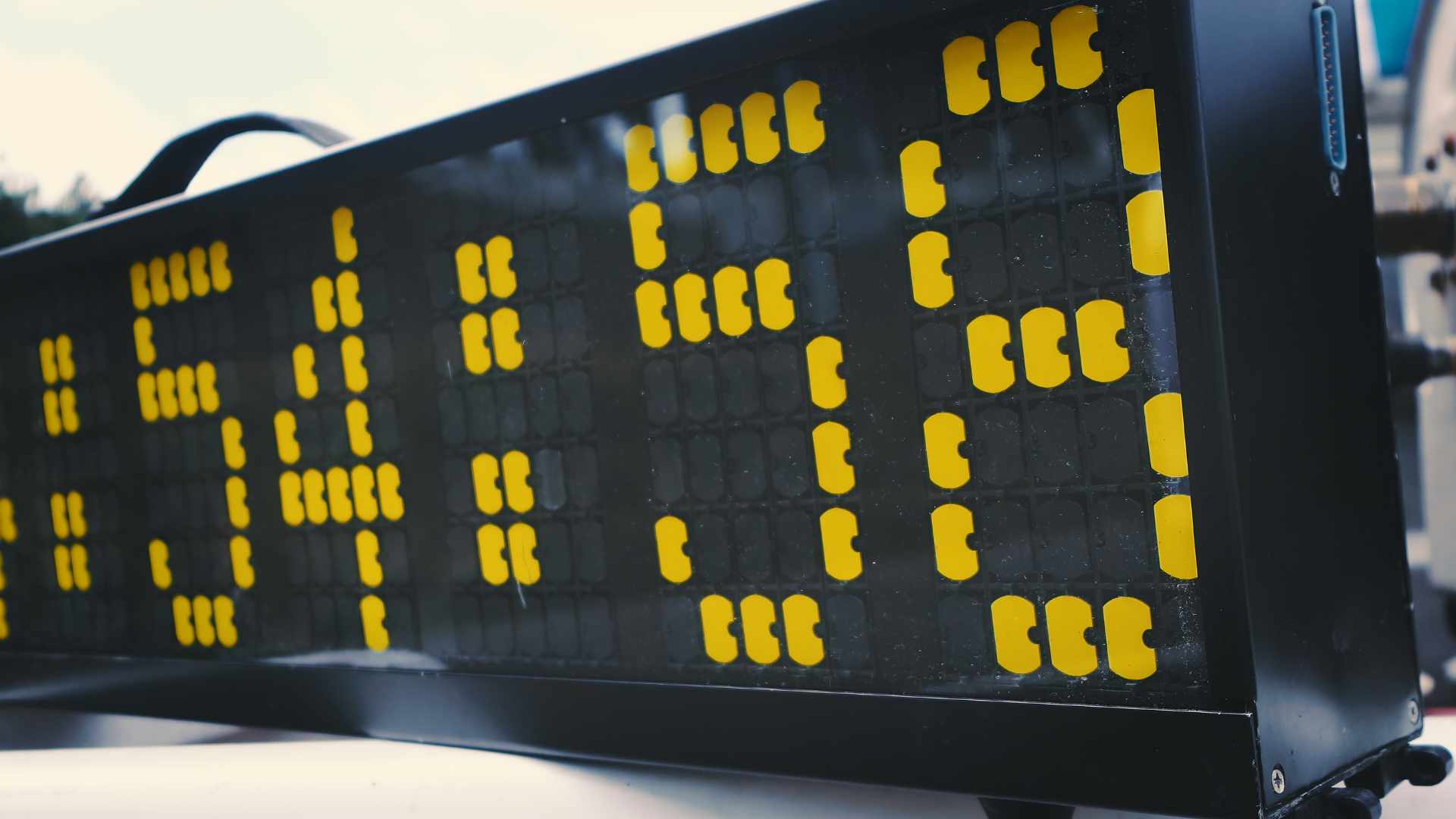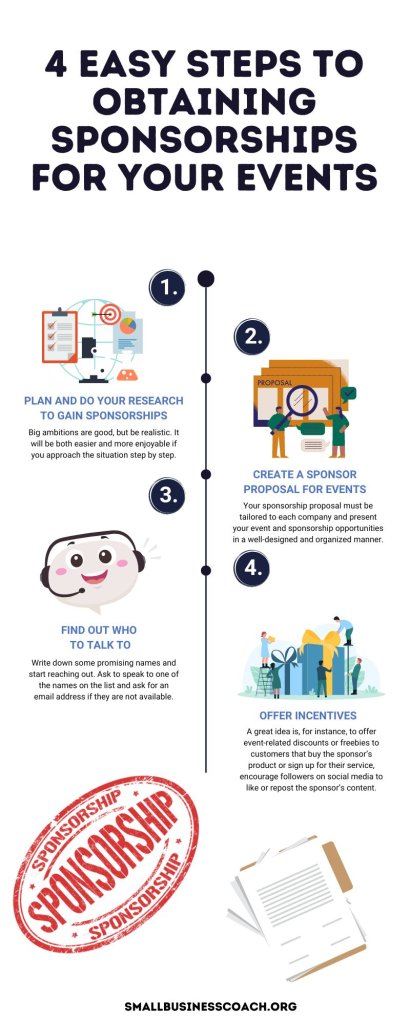VIEW BY TOPIC
- Finding Customers
- Business Systems
- Managing Employees
- Leadership
- Managing Money
Related Posts

Ready to Grow Your Business Fast?
Here’s How I Grew Five Businesses, and Eventually Sold One to a Fortune 500 Company.

4 Easy Steps To Obtaining Sponsorships For Your Events
It’s easy to plan events when money is not an issue. But in reality, the budget is always an important factor in event planning. Getting sponsorships can be challenging. But there are key ways that can help get you there effortlessly.
The potential sponsors you should approach depend on your event and your audience. It must be a good match between all three for it to work. Most importantly, you need to offer your sponsors something unique.
Below, we’ve compiled a quick guide to help you understand how to get sponsors for an event.
Plan And Do Your Research to Gain Sponsorships
Stop for a moment to plan how you will work with sponsorship. How much money do you need? How many sponsors can you take care of? What do you have to sell? Can you work alone or do you need to get help from someone?
Expectations and conditions are often two different things. Big ambitions are good, but be realistic. It will be both easier and more enjoyable if you approach the situation step by step.
It will make all the next steps easier if you research potential sponsors thoroughly. Start with companies in your niche and see if they already have experience with sponsoring events.
You can also check events similar to yours and see which companies sponsored them as they’re likely to sponsor future events of the same kind.
Create A Sponsor Proposal For Events
Once you have listed the potential sponsors, it’s time to create a robust proposal. Your sponsorship proposal must be tailored to each company and present your event and sponsorship opportunities in a well-designed and organized manner.
You have the option of writing your proposal from scratch or using a sponsorship proposal template, which makes it easier to generate a professional-looking document.
Your proposal should include enough details so that the potential sponsor can understand what is being offered and how this will benefit them. For this reason, make sure to include the following information: who you are and why you are credible, what the event is about, what kind of audience the event will attract, prominent speakers and sponsors, what the company will gain from the sponsorship, key figures (number of participants, social media statistics, etc.).
Find Out Who To Talk To
Once you’ve put together a proposal, it’s time to approach the potential sponsor.
It’s common practice to send an email but companies are flooded with them. So how do you make sure your email isn’t lost in the shuffle?
A smart tip is to go through LinkedIn and see if you can figure out who might be in charge of sponsoring events. It will most likely be someone from the marketing department. Write down some promising names and start reaching out. Ask to speak to one of the names on the list and ask for an email address if they are not available. Do not bother to leave a voicemail message, as it rarely works.
Before reaching out to potential sponsors, narrow down the options because event sponsorship meetings and pitches are time-consuming. Make sure to contact brands that align with your event values and that can represent the key goals and image of your upcoming events.
Essentially, the best sponsors to contact are those with the highest ROI on your time invested. Don’t forget that sometimes less obvious job titles and people in your network will be a better fit and more fruitful for pitching.
Offer Incentives
Sponsorships are a two-way street as sponsors also want something in return for their investment. This is why you should come up with a way to sweeten the deal and make them understand what they will get out of funding your event.

Will you place the sponsor’s name or logo on the promotional flyers and banners, will you mention them in your email newsletters, blog, or social media posts. A great idea is, for instance, to offer event-related discounts or freebies to customers that buy the sponsor’s product or sign up for their service, encourage followers on social media to like or repost the sponsor’s content.
When you show a sponsor that you’re willing to give more than just take, it will show them that you’re dedicated and serious about making the event a success.
Conclusion on Gaining Sponsorships
Securing sponsorships for an event is important, but making sure you’re organizing an exceptional event is far more important. If you don’t put effort to organize a good event, you’ll fail to build a long-lasting relationship with your sponsor and the next time you’ll want to secure a sponsorship will only get harder.
By following the aforementioned steps, you’ll be able to get valuable insights and create a stellar event experience and keep everyone involved happy.














